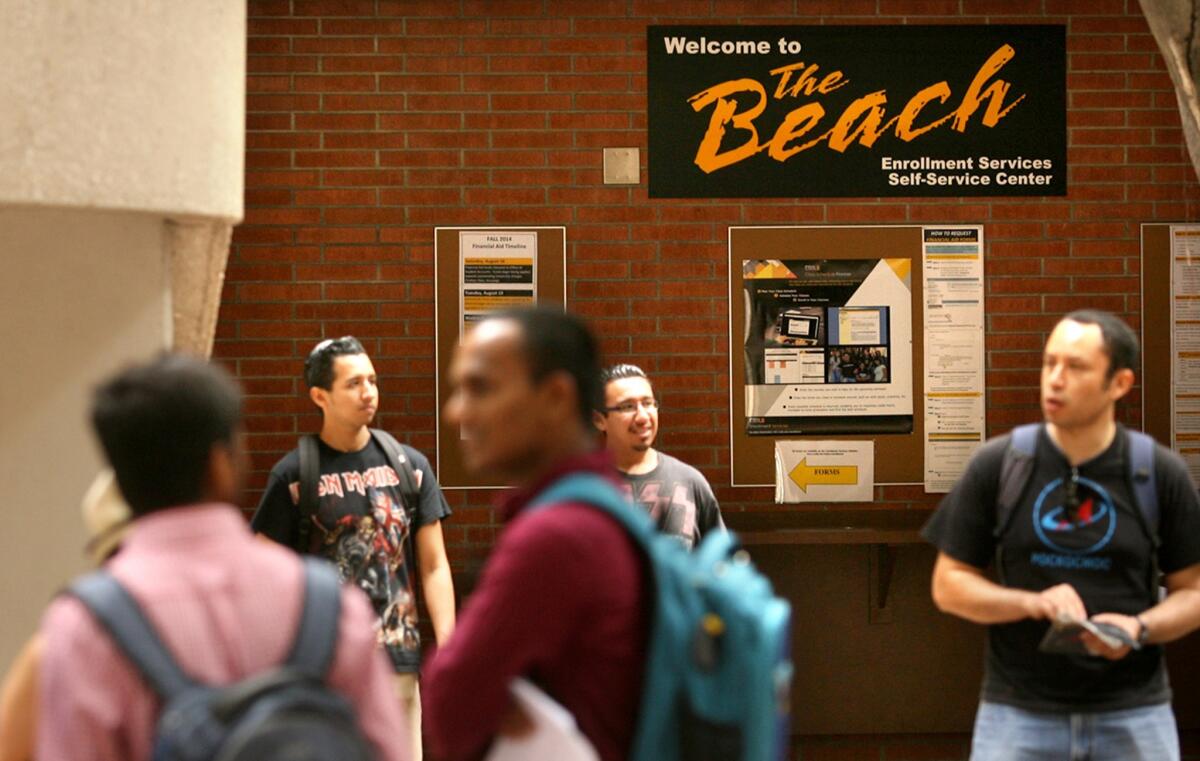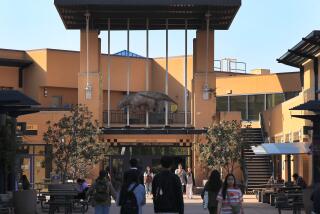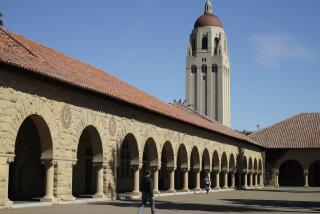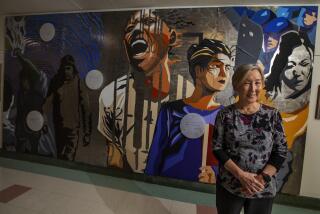Cal State awarded $60 million in federal grants to help diversify biomedical research

Three California State University campuses Wednesday were awarded more than $60 million in federal grants to help train low-income and minority students for biomedical research careers.
The National Institutes of Health grants are for five years and include $22.7 million to Cal State Long Beach, $21.8 million to Cal State Northridge and $17 million to San Francisco State University to develop mentorship programs, engage students’ families, improve instruction and develop community-based research projects.
“The opportunities it will bring about for our faculty and students are truly unprecedented for this university,” Cal State Long Beach President Jane Close Conoley said in a statement.
Twelve grants in all were awarded to colleges and universities around the country, part of an initiative to create a national consortium of institutions that will work on the best ways to attract biomedical researchers from diverse backgrounds and define the skills needed to succeed.
“The biomedical research enterprise must engage all sectors of the population in order to solve the complex biological problems and discover innovative new ways to improve human health,” NIH Director Francis S. Collins said in a statement.
“While past efforts to diversify our workforce have had significant impact on individuals,” Collins said, “we have not made substantial progress in expanding diversity on a larger scale.”
Cal State Long Beach is partnering with the UC Irvine and USC as well as local school districts and community colleges to train students for doctoral programs.
“As the largest award in the university’s history, it provides funding for stipends or hourly pay for students engaged in the training programs and research and allows us to renovate shared research spaces on campus and buy research equipment,” said Laura Kingsford, dean of the College of Natural Sciences and Mathematics at the Long Beach campus.
The project at San Francisco State will include overturning stereotypes that students of color and women lack the aptitude to succeed in the sciences.
As an example, “being a female has a negative stereotype in terms of quantitative skills in math,” which could hinder success in an all-male setting, said San Francisco State biology professor Leticia Marquez-Magana.
“That’s why we need to make these classrooms safe, to signal safety so that all students can walk into them and be the best they can be,” she said.
Northridge hopes to parlay students’ interest in social justice causes such as disparities in healthcare to attract new biomedical majors, with a focus on sending students into the community to do research.
“Many of our students come from communities where those disparities exist,” said Northridge psychology professor Carrie Saetermoe.
“They understand in a more personal way what is happening. When you take what we’re teaching them in the classroom and get them to think about social problems and health problems from their perspectives, they can come up with viable solutions.
“At the same time,” Saetermoe said, “we are developing passionate individuals who are inspired to go on to become biomedical researchers because they know firsthand, from their work as undergraduate and graduate students, that they can make a difference.”
Twitter: CarlaRiveralat
More to Read
Start your day right
Sign up for Essential California for news, features and recommendations from the L.A. Times and beyond in your inbox six days a week.
You may occasionally receive promotional content from the Los Angeles Times.







